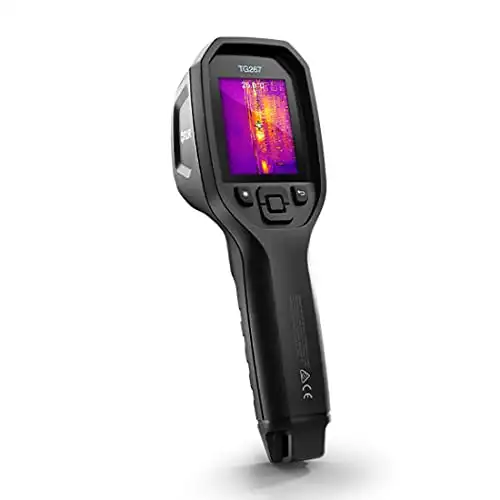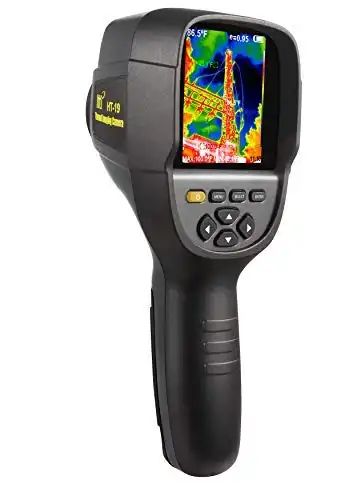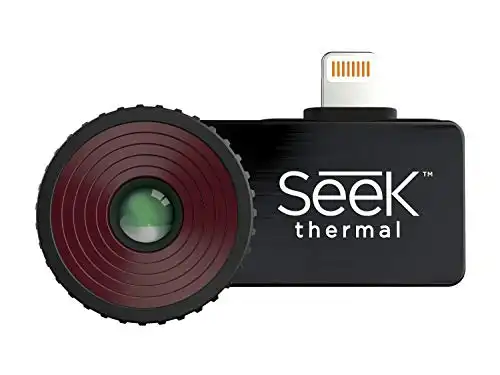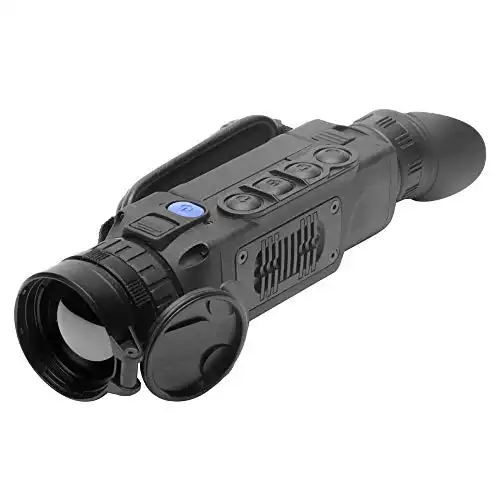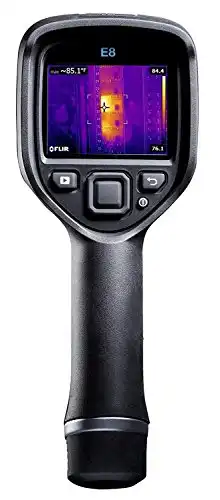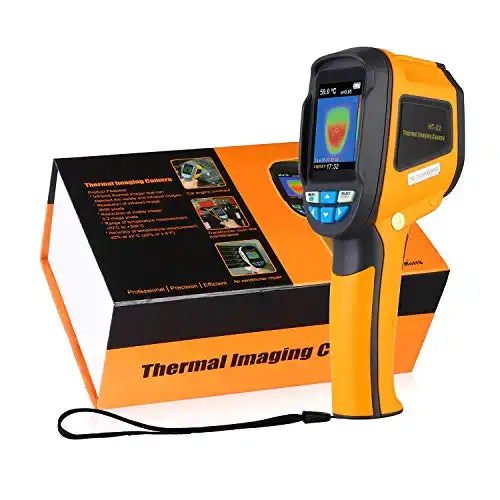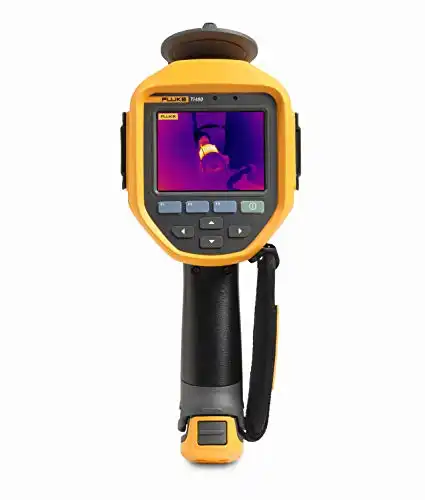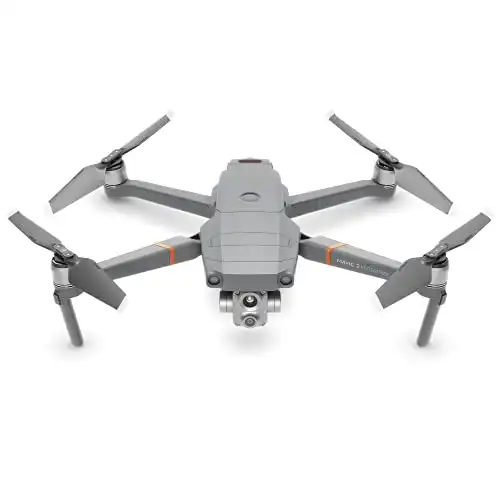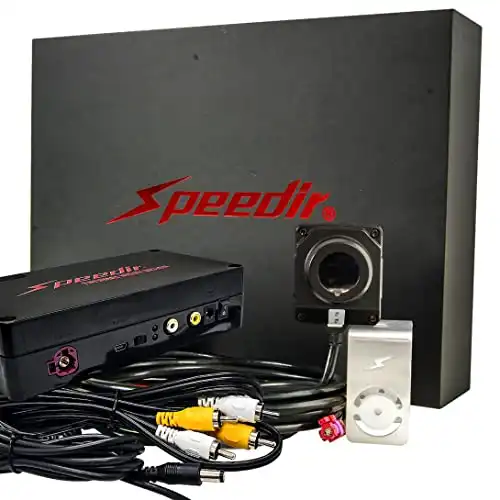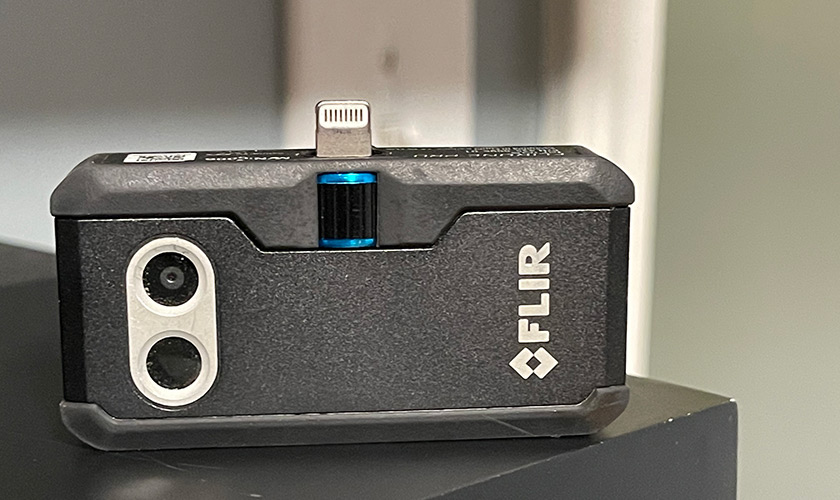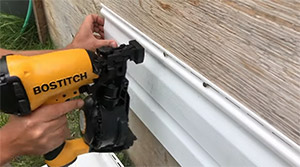Whether you’re an inspector, a first responder, a hunter, or anything else, thermal cameras are often necessary. Thermal imaging (infrared) cameras allow you to see what the naked eye cannot see regarding heat and temperature. Most people don’t realize the number of things in the world that give off heat signatures and what they indicate.
Thermal cameras are quickly becoming the norm in many different aspects of the workplace. Home inspectors, security guards, pleasure seekers, and medical personnel worldwide have started implementing thermal cameras for various uses. However, you must choose the right camera for the right application.
This article will take a comprehensive look at the best thermal cameras of 2022. We’ll examine the type of camera you need for whatever you’re doing and what to look for in a thermal camera.
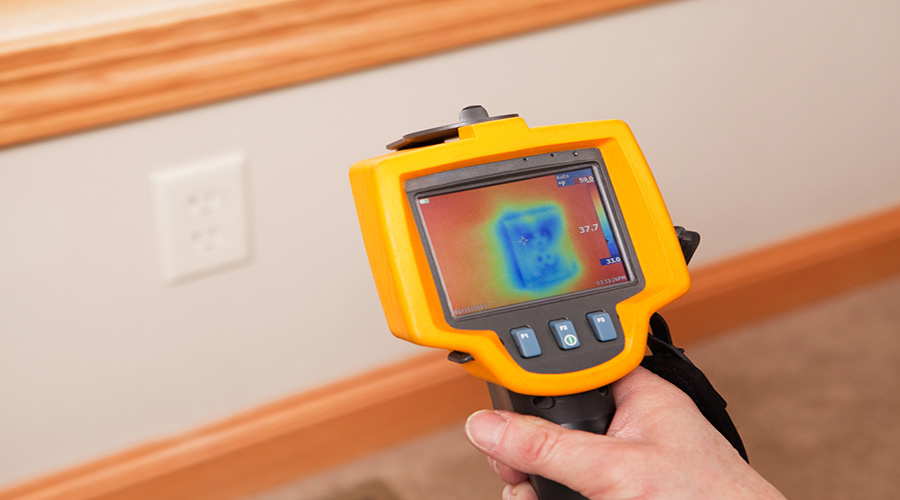
What does a Thermal Cameras do?
As the name indicates, thermal imaging cameras can pick up on heat signatures and temperature differences in objects and the atmosphere. When you point your infrared camera at something, you can tell which objects have a different temperature than others. A good temperature differential is extremely useful in many jobs and applications.
A high-quality thermal camera can even tell you the temperature of specific objects and how different they are from their surroundings. The better and more sophisticated your camera is, the more abilities it will have and the more fine-tuned. Today, thermal cameras get used for everything from warfare to healthcare and dozens of other things.

Types of Thermal Imaging Cameras
Handheld Cameras
Handheld thermal cameras look similar to smartphones in size, shape, and feel. There are several handheld cameras, including two-handed ones, trigger-style, and monocular-style. The two-handed cameras are similar to cell phones, whereas monocular cameras look more like single-lens binoculars.
Handheld cameras of all kinds get used in nearly all aspects of life that require thermal imaging. They’re the most utilized and most popular thermal imaging cameras, and they apply to whatever you’re doing where you can benefit from infrared technology.
Trigger-Style Cameras
Trigger-style thermal cameras are held with one hand and are extremely versatile. Home inspectors, first responders, security guards, and similar jobs love trigger-style thermal cameras. You only need one hand to operate the camera, so the other hand is free to hold something else. Trigger-style cameras are a type of handheld camera but are becoming popular enough to deserve their section.
Smartphone Attachments
Another type of thermal imaging device that’s getting extremely popular is smartphone attachments. Thermal imaging smartphone attachments are small, compact, and plugged directly into the bottom of your cell phone.
While they lack certain capabilities that larger devices have, they’re a favorite for homeowners, hunters, and others who want thermal imaging capabilities but don’t need it to the extent of a professional.
Drones
Drones are another popular option when it comes to thermal imaging. Drones are used mostly by the military, police, and similar lines of work because of their ability to remain undetected at great heights while giving off heat signatures on the ground.
Drones also get used in more peaceful walks of life, such as home and residential inspections and the mineral industry. They can inspect roofs, fields, and other large areas from up high and get a better overall view of what’s going on below.
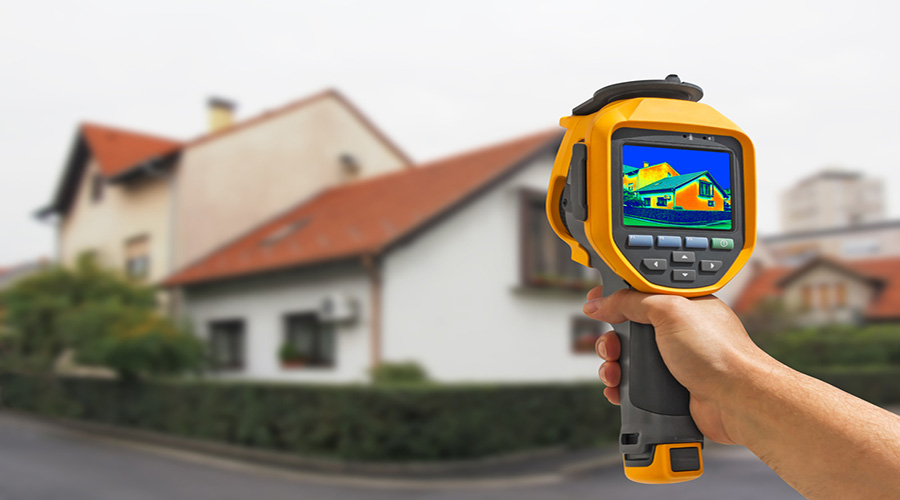
Who Needs a Thermal Camera?
If you haven’t figured it out yet, thermal cameras get used by many different professions. Their usefulness in detecting microscopic leaks and temperature differentials is second to none. Here are some specific professions that utilize the modern wonder of thermal cameras.
Home Inspectors
Home inspectors have recently started to use thermal cameras to detect various anomalies. Thermal cameras can detect the temperature difference if walls, ceilings, or attics are low on insulation in certain areas. They will also detect problems with a home’s HVAC system and the various components that make it up.
Since inspectors started using thermal cameras, they have quickly become the norm for serious home inspectors.
Plumbers
Thermal cameras can detect water leaks, water temperature, and temperature imbalances in a plumbing system. For these reasons, plumbers have started utilizing them and improving their work in ways never before.
Water heaters should have an internal temperature of 120 to 140 degrees Fahrenheit. Detecting the internal temperature is difficult unless you have a thermal camera to see right through the outer tank. The same goes for plumbing pipes and for detecting water leaks.
A thermal camera will note the temperature difference between water leaking from a pipe and the water inside the pipe. A high-quality thermal camera will even pinpoint the exact origin of the leak!
Electricians
Electrical work is an area where thermal cameras are extremely useful. You can’t see it with the naked eye, but electrical wires that have electricity running through them are extremely hot. Thermal cameras can see electrical shorts or areas where the wires are hotter than they should be, which is a fire hazard.
Thermal cameras can also detect areas of high resistance, loose connections, and other anomalies that could damage your electrical system. On a commercial level, power line workers can use thermal imaging cameras for the same reasons but on a larger scale.
Contractors
Just as electricians, plumbers, and home inspectors use thermal cameras to detect problems around a house or building. Contractors can use them for the same purposes. Contractors who use thermal cameras can detect problems before a home inspector has the chance. Catching problems ahead of time will save a ton of red tape and headaches from a failed inspection.
Realtors
If you want to step up as a realtor, a thermal camera is a great way to do it! A thermal camera will help you give prospective buyers and sellers a clear idea of problem areas to be aware of. Doors and windows that aren’t sealing properly, roof leaks, termite infestations, and many other hazards are detectable with a thermal camera. You’ll be the envy of the office thanks to your new thermal imaging camera.
First Responders
We mentioned before that thermal cameras can mean the difference between life and death, and we meant it. First responders such as firefighters use thermal imaging cameras to see through smoke inside a burning building. Thermal cameras can see through the noise and obstacles to detect physical heat signatures needing saving.
Police officers incorporate thermal cameras when they’re in search of a suspect. They use thermal cameras in many of the same ways that firefighters do in that they can see through smoke and darkness and detect heat signatures. Thermal cameras are also useful during crime scene investigations and rescue operations.
Security and Military Use
One of the top uses for thermal imaging is in the fields of security and warfare. The military uses thermal cameras on drones, handheld devices, and monocular devices to get an advantage on their enemy. They also use vehicle-mounted thermal cameras for active thermal detection.
On a local level, security guards and modern security systems also have thermal imaging capabilities. Thermal cameras can uncover hotspots and heat signatures that the naked eye cannot see at night.
Healthcare
During viral outbreaks such as SARS, ebola, and the recent coronavirus, thermal cameras were useful for detecting fevers in people. A high-quality camera can give an accurate temperature reading within one or two degrees of correctness. They can also detect when someone’s body temperature is slightly higher than it should, indicating a fever.
The Best Thermal Cameras of 2022
Now that you understand how useful and revolutionary thermal cameras are let’s dive into the best thermal cameras on the market!
Ideal for Home Inspection, Commercial Electrical, Facility Maintenance, and HVAC Applications, Brilliant 2.4 Inch Screen, Record Images to Monitor Maintenance History
FLIR TG267
FLIR is one of the leading brands in thermal imaging cameras, and the TG165 is the best all-around option available. Whether you’re a home inspector, contractor, firefighter, or anything else, this camera is ideal for what you need.
The FLIR TG267 is a trigger-style handheld camera that’s extremely lightweight and operable with one hand. It can detect temperature differentials within two degrees of accuracy and has a temperature range from -13 to over 700 degrees Fahrenheit. This camera is also a great option considering its highly affordable price point, fluctuating between $500 and $600.
The FLIR TG267 is great as a starter camera or if you want to step up from a smartphone attachment. Any worker who values accuracy, portability, and having a free hand should seek out this bad boy.
Pros
- Very affordable option no matter what your budget is.
- Great temperature differential and accuracy.
- It weighs around one pound, making it easy to hold with one hand for prolonged periods.
- It has 8 GB of memory storage but can support up to 32 GB.
Cons
- The resolution and imaging are decent, but it could be better.
Model HTI-19 with Improved 300,000 Pixels, Sharp 3.2in Color Display Screen, Battery Included. Lightweight Comfortable Grip.
HTI Xintai Higher Resolution Infrared Thermal Camera
The HTI Xintai Infrared Thermal Camera is slightly more affordable than the FLIR TG165 but of similar quality. It’s a handheld trigger-style thermal camera that you can easily operate with one hand for an extended period.
It has a temperature range of -4 to 572 degrees and a resolution of 320 x 240 pixels which is extremely good for the price. The temperature range isn’t quite as good as the FLIR, but the resolution and image quality is better.
It only weighs one pound, has a 3.2-inch screen, and is ideal for new or experienced thermal camera users. This camera is also very durable, and you can upload your images onto a laptop or other device for enhanced viewing capabilities.
Pros
- Extremely lightweight and easy to use
- Perfect for lengthy home inspections where you only have one free hand
- High resolution and superb temperature differentials
- Built-in 3 GB memory
- Excellent product for its price point
Cons
- You must hold it with a hand and can’t mount it to a tripod.
Also available for Android MicroUSB & Android USB-C
Seek Thermal Reveal Pro
Seek is another one of the top brands in thermal cameras regarding handhelds and smartphone attachments. They make some of the best compact thermal cameras on the market, and the Seek Thermal Reveal Pro is no exception.
The Thermal Reveal Pro is a two-handed thermal camera that looks and feels similar to a smartphone. While it takes two hands to operate accurately, it’s extremely lightweight at 2 ounces heavy. It also has unmatched resolution and temperature range for a camera of its size.
It’s ideal for contractors, plumbers, electricians, and home inspectors that work in dirty areas and need something durable. The resolution is 320 x 240, the temperature range is from -4 to 626 degrees Fahrenheit, and it’s accurate up to 500 feet away. For the size, quality, and price, it’s tough to compete with the Seek Thermal Reveal Pro.
Pros
- Extremely high resolution and temperature range
- 10 hours of battery life
- High refresh rate
- Built-in
flashlight - It has a 500-foot range for reading temperatures
Cons
- A very small screen that can be hard to read
- It doesn’t capture videos
Pulsar Helium 2 XP50 Pro
The Pulsar Helium 2 XP50 Pro is a thermal imaging monocular device which means you hold it with one or two hands and look through it with a single eye. This device is extremely popular with hunters and military personnel, but it’s also useful in other walks of life.
This device from Pulsar is one of the best in the business regarding thermal monoculars. It features an insane resolution of 640 x 480 pixels along with a range of nearly 2000 yards. This thermal monocular is changing the game in thermal imaging thanks to new and improved technology and zoom capabilities.
You can zoom in on an object, amplify it up to 8 times its size, and not lose much quality or resolution. It also has 16 GB of built-in photo and video memory and eight different color palates, unlike the typical four or five. Add in Wifi integration and being extremely easy to use with your mobile device, and you’ve got a serious contender for the best overall thermal camera on your hands.
Pros
- The incredible resolution, zoom, and range
- Waterproof, lightweight, and easy to use
- Rechargeable battery life of 8 hours
- Very durable and can operate in cold temperatures
- One of the best hunting thermal cameras on the market
Cons
- The temperature range is only -13 to 122 degrees Fahrenheit, limiting this device to human and animal detection.
This is the Cadillac of thermal image cameras with an extended temperature range, enhanced imagery, WiFi & Bluetooth technology for easy data sharing.
It's easy to use, fully automatic, and focus-free. MSX and VividIR allow enhanced image processing and Video capabilities for the sharpest mobile thermal imaging performance.
FLIR E8 XT Thermal Imaging Camera
If you’ve got room in your budget, the FLIR E8 and the FLIR E8 XT are two cameras that you should consider. Ringing in at over $3,000, however, they’re definitely on the expensive end. Therefore, we will focus on the FLIR E8 XT since it’s the more affordable option.
The FLIR E8 XT is a top-of-the-line thermal camera option for serious people who value accuracy and quality. With this camera, you can find anything from structural defects to moisture issues to electrical problems and everything in between. The resolution and quality are second-to-none, with pixels of 320 x 240 and an accuracy of within 2 degrees. It also has thermal sensitivity that’s accurate to within .05 degrees.
This handheld trigger-style camera can also upload images to other devices via Wifi, Bluetooth, or USB cable based on your preferences. No matter your inspection needs, the FLIR E8 XT will do the job precisely and accurately.
Pros
- Extremely high resolution at 320 x 240
- Extended temperature range up to 1022 degrees and MSX image enhancement technology
- Easy image uploading via Wifi, Bluetooth, or USB
- Highly sensitive to temperature differences and extremely accurate
- Lightweight and easy to use with one hand
Cons
- Very pricey at over $3,000
Best Budget Thermal Camera
Urpro HT-02 Thermal Camera
If you don’t require an extremely expensive camera but need one that’s fairly high in quality, the Urpro HT-02 Thermal Camera might just be for you. At $200, this camera is the perfect bridge between affordability and quality. Upper is one of the lesser-known thermal camera brands on the market, which is partially why the price is as low as it is.
The temperature range on this camera is from -20 degrees to 300 degrees which is sufficient for most plumbing and home inspection needs. It’s also an extremely accurate camera with a temperature differential of .15 degrees. Tons of handy features make this camera great for hunting, home use, and situations where durability is important.
Pros
- Very affordable
- Lightweight and easy to use and carry
- Best overall camera for hunting purposes
- Decent temperature range and great temperature sensitivity
Cons
- The resolution could be much better as it’s only 60 x 60
- The battery is not rechargeable
Best Splurge Thermal Camera
For those who need the ultimate in thermal imaging. It features increased sensitivity to visualize temperature differences and is easier to visualize and diagnose issues with sharper onscreen images, multiple rectangle markers, and nine color palettes.
It has a more intuitive visual interface and an improved user-tested touch screen interface.
This camera offers more flexibility to visualize target, tiny-to-large with interchangeable smart lenses with no calibration required, 2x and 4x telephoto, wide angle and macro lens compatibility.
Fluke Ti480 Pro
Be forewarned that the Fluke Ti480 Pro is a top-of-the-line thermal imager that you will fall in love with if you try it. The downside? It currently rings in at over $11,000, which is too expensive for most people. If you’re serious about getting the best use out of a thermal camera, it’s hard to compete with the Fluke Ti480 Pro.
This camera is a handheld trigger-style thermal imager weighing 9 pounds. You’ll likely need both hands for this beast, but the good news is that you’ll get your workout in while using it. It’s large and powerful enough that it must get powered with an electrical cord during use.
The Fluke Ti480 Pro can operate in any conditions, no matter how harsh they may be. The temperature accuracy is accurate within 2 degrees, and it has a resolution that’s four times stronger than the norm of the thermal imaging industry at 1280 x 960.
Pros
- Offers unmatched resolution and accuracy
- Wifi, Bluetooth, or USB compatible for uploading images
- Temperature range of -4 to 1832 degrees Fahrenheit
- Temperature sensitivity of .05 degrees
Cons
- At over $11,000, it’s far and away from the most expensive camera on this list
- At 9 pounds, it’s on the heavy end for handheld thermal cameras
Best Thermal Camera Smartphone Attachment
Also available for Android MicroUSB & Android USB-C
Seek Thermal Compact Pro
If you have your heart set on the ease and convenience of a smartphone attachment, the Seek Thermal Compact Pro is one of the best. Seek is an industry leader in thermal cameras and smartphone thermal camera attachments. It clips perfectly into the bottom of your phone, and you operate it using the accompanying SeekThermal app that you download onto your phone.
This device is small, sleek, easy to use, and affordable compared to most handheld thermal cameras. It has temperature sensing features that rival those of handheld and drone devices. The temperature range is from -40 degrees to 626 degrees Fahrenheit, and the thermal sensitivity is .07 degrees. It can also sense the temperature of objects up to 1800 feet away!
It also has a resolution of 320 x 240, which is about as good as it gets. This device is limited because it only has infrared technology and nothing more. It also doesn’t have an LCD screen and has short battery life.
Pros
- Excellent resolution at 320 x 240
- Easy to use and install, and the accompanying app is top-notch
- Good temperature range and thermal sensitivity
Cons
- While it’s great for the price point, smartphone attachment thermal cameras simply can’t do everything that a handheld device or drone can do
- Short battery life
Best Drone Thermal Camera
DJI Mavic 2 Enterprise Advanced
If you’re in the market for a drone with thermal imaging capabilities, the DJI Mavic 2 Enterprise Advanced is the one for you. As far as drones are concerned, they’re relatively easy to operate and have a short learning curve. It’s perfect for roof or flat-roof inspections or high outside walls and gives you images of areas that would be otherwise inaccessible.
The resolution is insane at 640 x 512, and the temperature sensing capabilities are accurate within 2 degrees. This drone has thermal and visual image capabilities, meaning it can switch back and forth as needed or display both images simultaneously in split-screen mode. There isn’t a whole lot that this drone can’t do as the resolution, zoom, and video capabilities are better than most handheld thermal cameras.
Pros
- Extremely high resolution that’s twice as good as most handheld devices
- 48MP visual camera with live stream HD capability
- You can use it for automated inspections with up to 240 waypoints
- Has both thermal and visual imaging cameras and capabilities
Cons
- A little on the pricey side
Best Car-Mounted Thermal Camera
This technology can detect pedestrians and wildlife before your headlights to prevent collusion. Detects pedestrians, deer, moose, elk, kangaroo, and other large wildlife. Even see through fog, smoke, and dust.
Night Owl Plus Infrared Deer Detector
Depending on where you live in the world, deer and other large animals are a big problem for night driving. Countless cars get totaled, and accidents have occurred because of an unseen deer in the middle of the road. The Night Owl Plus is a state-of-the-art thermal camera that mounts to the front of your vehicle and displays thermal imaging onto a screen mounted inside your car.
The Night Owl Plus can also see through dense fog to detect problems ahead. It’s also great for busy subdivisions with many foot traffic that you have difficulty seeing late at night or early in the morning. Night Owl technology utilizes artificial intelligence and infrared technology to help you see what the naked eye cannot.
Pros
- Extremely high resolution with 384×288 thermal sensor and 720x480p output resolution.
- Can see through fog, smoke, dust, and darkness to detect driving hazards.
- Can detect heat signatures up to 3,000 feet away.
- The camera will give an audible warning when you’re within 400 feet of a heat signature.
- You can install it with wireless Wifi capabilities.
Cons
- A little pricey at right around $2,000.
How do I Choose the Right Thermal Camera?
What do You Need It for?
When choosing a thermal camera, you should consider what you plan to use it for. Depending on your job or purpose for the camera, you may need higher resolution and accuracy. Accuracy and resolution aren’t quite as important if you only use a thermal camera for fun or things around your home.
You should also think about the environment where you’re using your camera. Some thermal cameras are more durable and resistant to drops and dust than others. Certain cameras also operate better in cold or hot weather, and water resistance is also a factor to consider. It is crucial to choose the right camera based on your job and where you plan to use it.
The Temperature Range and Accuracy
Thermal cameras make their name based on how accurately they detect temperature differentials. Having a camera with a large temperature range and high accuracy gives you more abilities than a low-quality camera. Accuracy and range are important when dealing with subzero temperatures or super-heated elements.
Resolution
Resolution is measured in pixels and determines how clear the image on your camera is. The high resolution comes at a higher price, but detecting subtle differences with pinpoint accuracy is necessary. High-resolution cameras are great for finding tiny plumbing leaks, roof leaks, or other problems where accuracy and resolution are paramount.
Durability
Your working environment and how you use your camera are big components of durability. Durability is extremely important if you work in dirty, dust, water, or tend to drop your camera. A high-quality thermal camera is a big investment, and you don’t want to be replacing yours every year because it keeps giving out on you.
Price Point
As with most things, your budget will play a big role in selecting your thermal camera. If your job requires you to have the best of the best, you should invest in a top-dollar option. If you want a thermal camera for recreational purposes or a side gig, starting with a cheaper option isn’t bad.
Size and Weight
By and large, thermal cameras are small, light, and easy to operate. However, some higher quality and heavier-duty thermal cameras can weigh 5 to 10 pounds which will get heavy quickly if you try to hold them with one hand for prolonged periods. Choosing a camera you can easily manage is important for the best use.
Related Questions
What is the best thermal imaging camera?
The best thermal imaging camera depends on your needs and how you plan to use your camera. A contractor’s best thermal imaging camera might not be the best thermal imaging camera for a security guard. In terms of overall quality and capabilities, the best thermal imaging cameras get made by Fluke, Flir, and Seek.
What is the difference between an infrared camera and a thermal camera?
Thermal and infrared technology are closely related. Thermal cameras use infrared technology to detect the temperature differences in objects and the atmosphere.
How do I choose a thermal imaging camera?
The best way to choose a thermal imaging camera is by determining what your needs are and what your budget is. You should refer to the buying guide sections in this article for a more comprehensive look.
Is a thermal camera worth it?
Thermal cameras are worth it, depending on your line of work and how good you want to be at your job. Lives get saved, and construction, plumbing, electrical, and numerous other problems get detected thanks to thermal cameras.
Final Thoughts
No matter what line of work you’re in or what your needs are, there’s a thermal camera that can make your life easier. The options are unlimited, from smartphone attachments to one-handed cameras to drones and everything in between!
You must determine your needs and what kind of budget you’re working with before making your final decision. While there are many great options, not all are right for every situation. By following the buying guide in this article and choosing one of the options available, you can find the best thermal camera for your needs.


